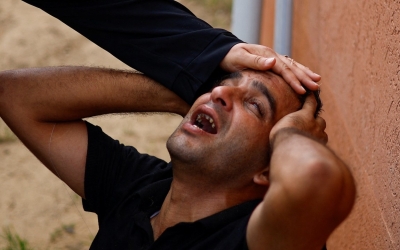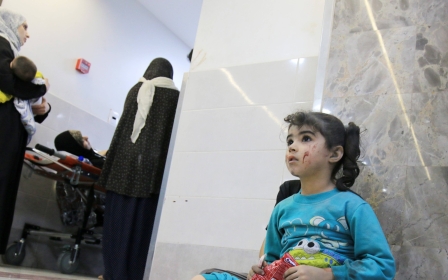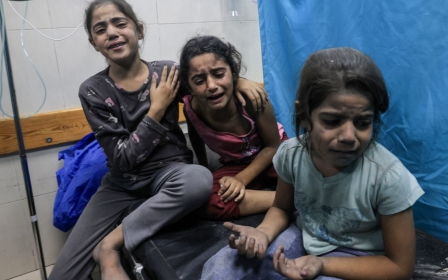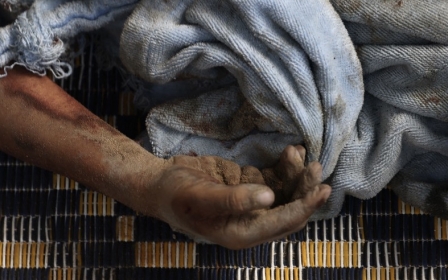Israel-Palestine war: Ahmed Abu Artema, one day you will be free
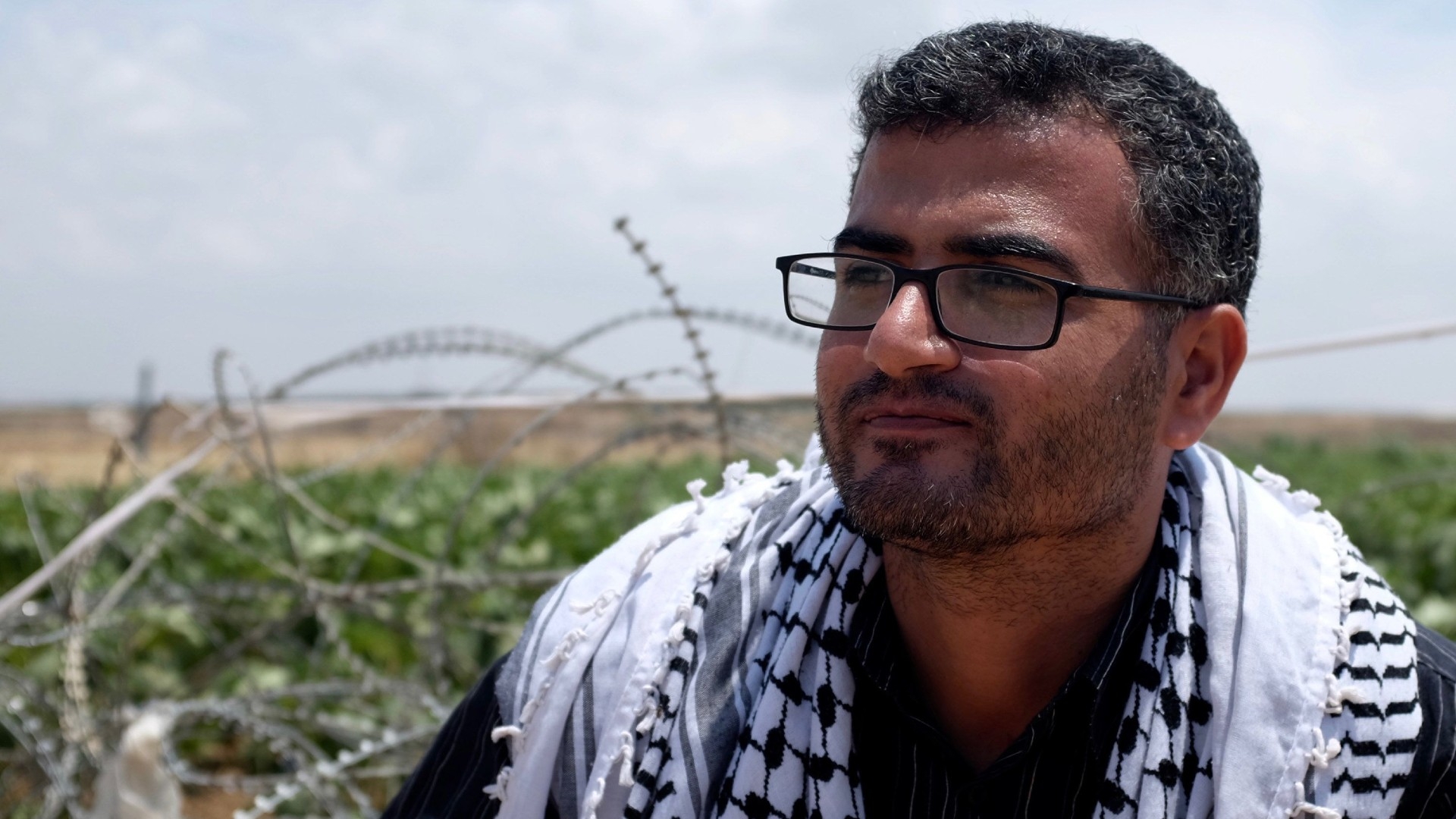
“Keep marching, build up the pressure, we need your support.” These were always the words of Ahmed Abu Artema when we asked on our WhatsApp group of friends how we could support Palestine.
Ahmed has been our eyes in Gaza. Amid the ongoing war, we have waited for his daily messages to tell us that he is okay - as if this could reassure us that Gaza is fine.
But the last message we received from Ahmed was on 21 October. We began worrying about what might have happened to him, looking in the news for his name; was he among those killed by Israeli shelling? Was he out of power? I began hoping that he and his family had found their way to the relative safety of a tunnel.
Several days later, on 24 October, we learned that Israeli shelling had hit Ahmed’s family. They were among many who had moved to southern Gaza at Israel’s request, thinking it would be safe there.
As a result of the attack, Ahmed lost five members of his family, including his youngest son - his youngest son, who dealt with the fear of air raids by shouting “hey hey” after each bomb.
New MEE newsletter: Jerusalem Dispatch
Sign up to get the latest insights and analysis on Israel-Palestine, alongside Turkey Unpacked and other MEE newsletters
Ahmed himself was also seriously injured, suffering second-degree burns. Like Wael Dahdouh, the Al Jazeera correspondent who recently lost his wife, son, daughter and grandson in an Israeli air raid, Ahmed had fled to a place Israel had said would be safe.
Already, more than 30 journalists have been killed in the war, the overwhelming majority of them Palestinian. There are reports that Israel has deliberately targeted some media workers, as it continues to commit atrocities throughout Gaza.
'We couldn't stay silent'
Ahmed has always believed in peaceful marches as a method of struggle. “What would happen if thousands of Gazans … attempted to peacefully cross the fence that separated them from their ancestral lands?” he asked on social media in 2018.
This became the inspiration for the Great March of Return, which began in March of that year to demand an end to the Israeli blockade of Gaza and recognition of the right of return for Palestinian refugees.
Follow Middle East Eye's live coverage for the latest on the Israel-Palestine war
“I grew up with a great affinity to freedom,” Ahmed, who in addition to being a journalist is also a poet and leading activist, said in a public address last year. “The idea of freedom is always with me, and since my childhood, I have longed for it. I keep dreaming about living without borders.”
The Great March of Return took place because Palestinians in Gaza had no other choice, he said.
Why is Israel believed when it gives its version of what happened in a massacre, while Palestinians are accused of lying about the numbers of their own dead?
“We had to do something, because we were experiencing a slow death, and we couldn’t stay silent … We made that choice because we live under colonisation,” Ahmed said. “Think of what it must be like when you put a person in a prison condition, without food and water … He wants to break free from the pressure of a slow death. Palestinians don’t have the choice of staying silent. If we do so, it will lead to even more deaths.”
The marches were spaces of hope, where political conversations flourished, Ahmed said: “They were spaces in which we reclaimed our existence - and sometimes an outcry to the world that we are here, imprisoned, and we want a way out.”
Ahmed wanted to give hope to young people in Gaza by telling them about different forms of struggle. But although the Great March of Return was non-violent, the Israeli army responded by shooting live ammunition into the crowds. During a year of marches, more than 200 Palestinians, including dozens of children, were killed, and thousands more were injured by Israeli forces.
Reclaiming language
Shooting at peaceful demonstrations is nothing new for Israel, but still, the state claims it does not have a partner in peace. For those seeking context to the current situation in Gaza, peaceful demonstrations have long been tried. The Great March of Return was a public outcry, an attempt to escape the Gaza prison.
Marches are spaces for holding political discussions and reviving dreams. In the Great March, it was the dream of return. Even as he was under Israeli shelling last month, Ahmed kept asking us to continue marching, to create pressure so the world could hear.
But what will the world hear now? There is a western-supported war on poor people in a besieged territory, and there is a global media war on language - a massacre of words in which Israeli violence is called “self-defence”, and Palestinian resistance “terrorism”.
Are we to believe that ethnic cleansing and genocide are legitimate methods of self-defence; that Israelis are humans who love to live, and Palestinians are animals who love to die? Why is Israel believed when it gives its version of what happened in a massacre, while Palestinians are accused of lying about the numbers of their own dead?
Ahmed, since you have always believed in marches, perhaps when you are healed, we can call for a march to reclaim language - a march to liberate ourselves and the occupiers, to liberate the moral bankruptcy of humanity.
You once wrote: “I resent the occupation because it ruins my evening walks, because it goes against the law of nature. I resent the occupation because it clips my wings and does not let me fly. I resent occupation because it shatters my dreams.”
You were born in 1984, but because of the Israeli blockade, you never set foot outside Gaza until 2015. You tried to escape the open-air prison by reading books, aiming to feel connected to other human cultures. We hope you will one day grow wings to fly and catch your dreams; to visit your village of Ramle, from which your parents were forcibly displaced decades ago, and to live in the single democratic state you’ve always advocated.
Until the moment of return, we wish you a speedy recovery.
The views expressed in this article belong to the author and do not necessarily reflect the editorial policy of Middle East Eye.
Middle East Eye delivers independent and unrivalled coverage and analysis of the Middle East, North Africa and beyond. To learn more about republishing this content and the associated fees, please fill out this form. More about MEE can be found here.



